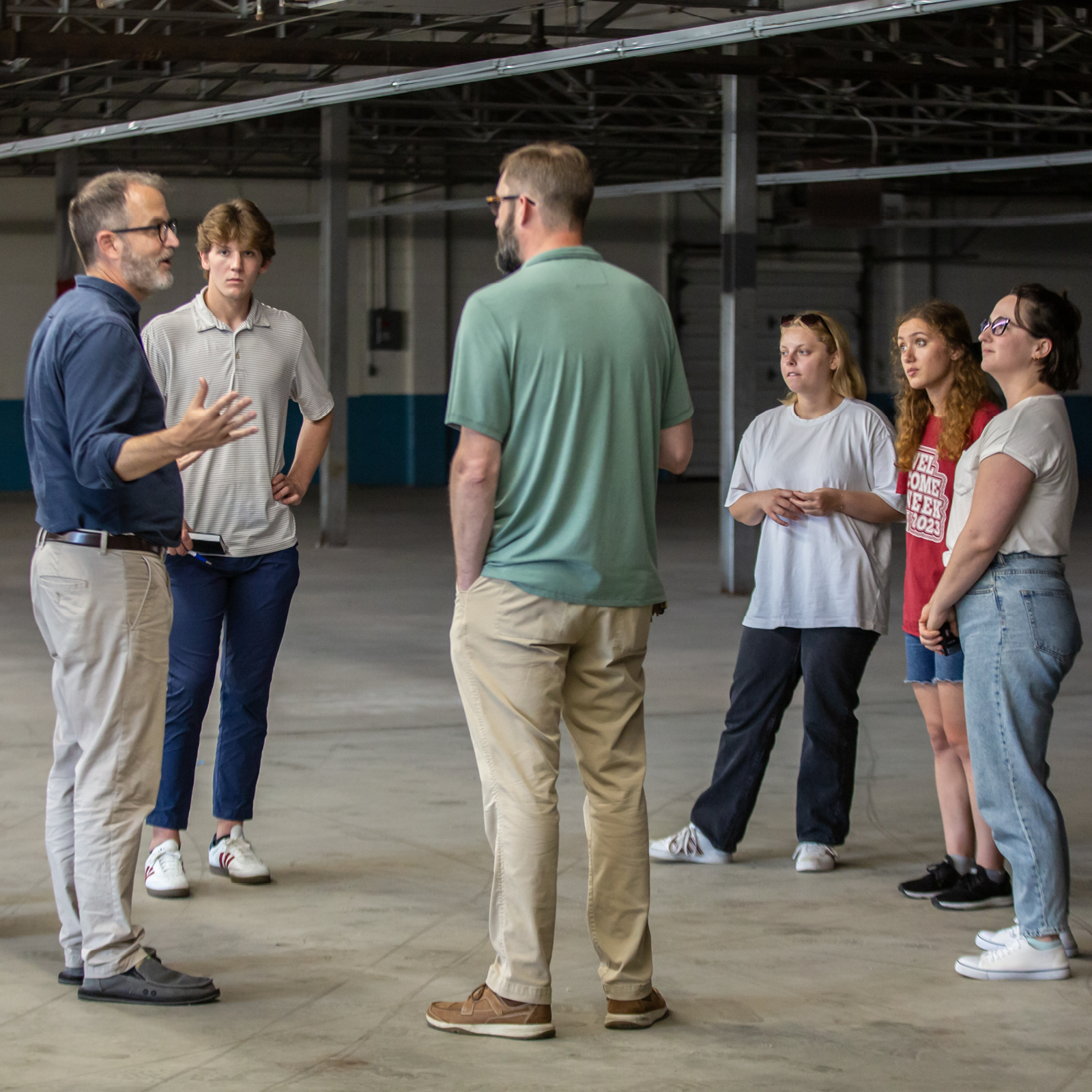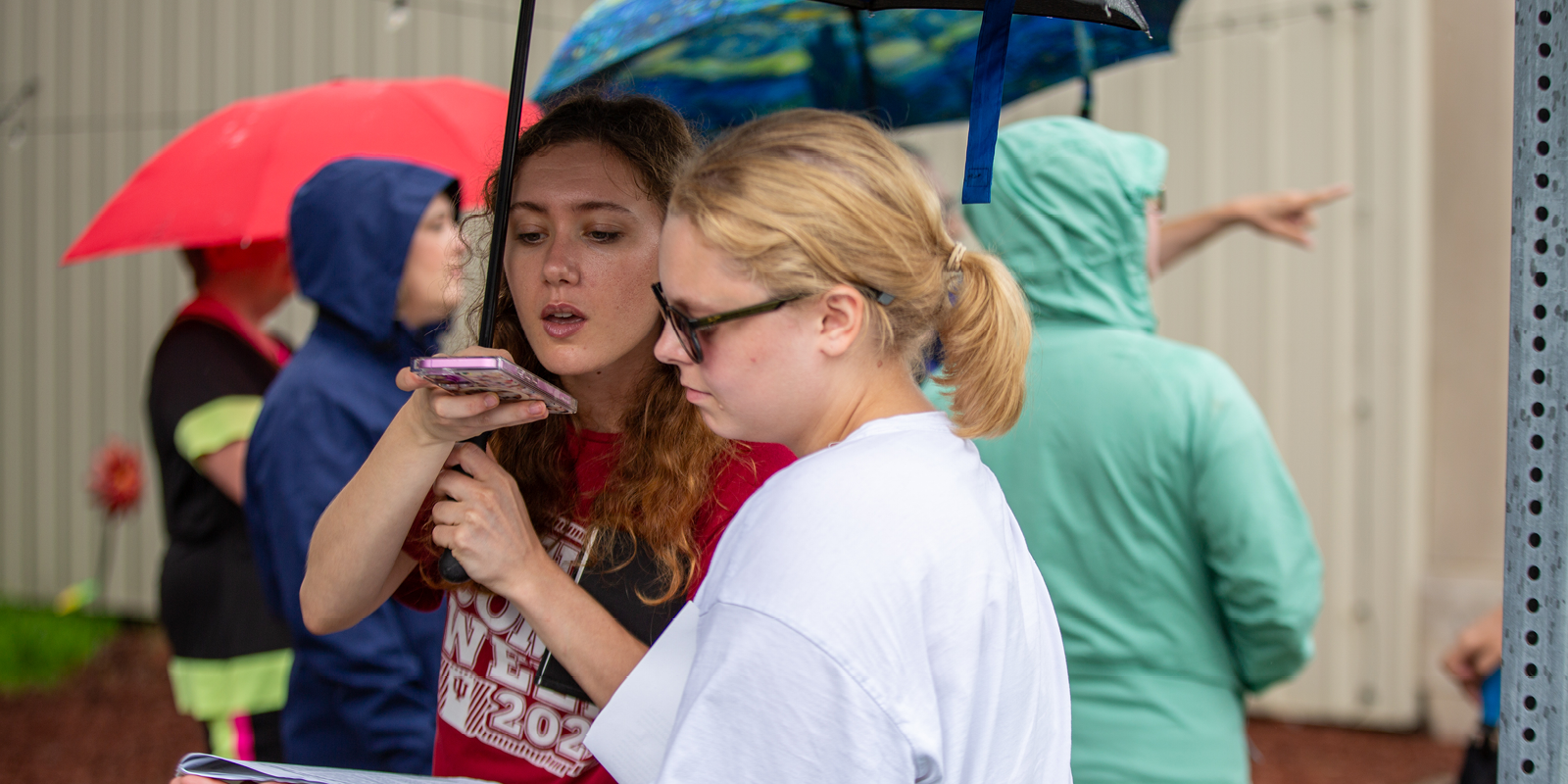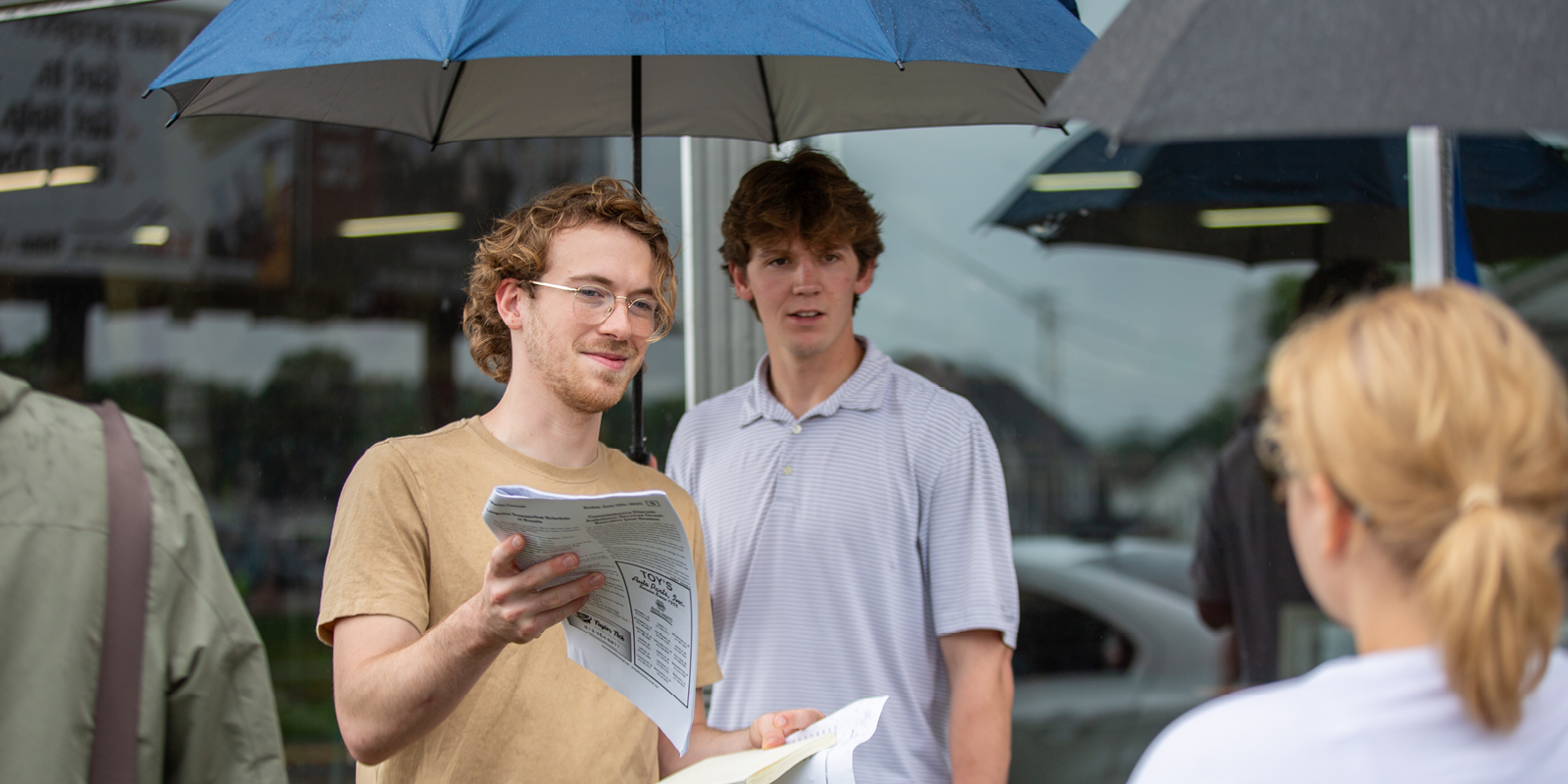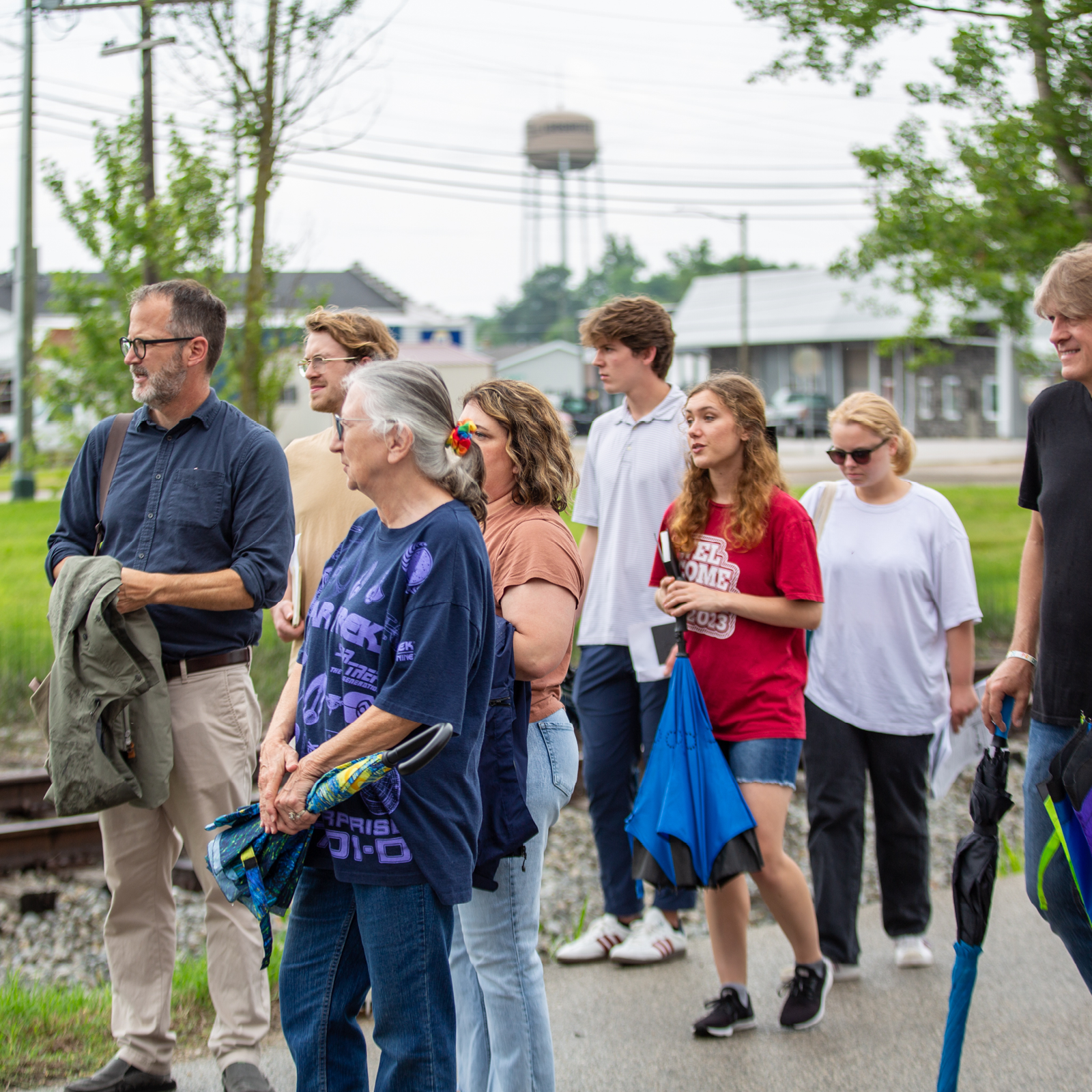Source: Center for Rural Engagement
For Eskenazi School of Art, Architecture + Design students Marilyn King and Will Potter, the Rural Placemaking Studio has been a learning experience and an opportunity to use their design skills as tools for positive community change.
The Rural Placemaking Studio, a collaborative initiative of Indiana University’s Center for Rural Engagement and the Eskenazi School of Art, Architecture + Design, connects IU students and faculty with rural Indiana communities to reimagine and revitalize public spaces.
Through immersive, hands-on projects across the state of Indiana, Marilyn and Will, along with a team of Rural Placemaking Studio fellows, found themselves growing as designers while gaining a deeper understanding of how design can change the lives of others.
Both Marilyn and Will had the opportunity to work with the city of Loogootee, Indiana, located just an hour southeast of Bloomington.
One of Marilyn’s projects involved working with local leaders to provide design support for a walking tour that highlights the city’s historic Mesker buildings. Marilyn was able to provide graphic and web designs and a corresponding map brochure. For Tim Brown-Salsman, president of the Community Action Leading Loogootee (CALL), and the rest of the team at CALL, this support was invaluable.
“Our hope for the Mesker tour is that it will excite locals and visitors alike to explore our downtown architecture,” said Brown-Salsman, “Walking around with a map of Mesker buildings will take them through the heart of Loogootee.”
In early September, the Loogootee Historic Commercial District, where much of the Mesker tour is located, was listed on the National Register of Historic Places.
“The Rural Placemaking Studio helped us focus in,” Brown-Salsman said. “It helped us stop worrying about the technical end of website building and brochure construction.”
Will, a comprehensive design student, created pre-architectural renderings for Launch 99, a project in Loogootee that is taking a former manufacturing facility and turning it into a co-working space and entrepreneurship hub. Will’s renderings helped visualize layout concepts, areas for a café, group meeting space, transportable offices, and even areas for public art or murals.
Keith Peacock, vice president of manufacturing for Knox County Association for Remarkable Citizens (KCARC) and project manager for the Launch 99 initiative, spoke to how transformative Will’s work was to the project.
“The picture really, really helps. It helps with contractors and conveys the vision of what we’re trying to accomplish,” he said.
For both Will and Marilyn, being involved with the Rural Placemaking Studio gave them the opportunity to work in a client-facing capacity.
“I learned how to handle clients directly, something that is hard to simulate in a classroom setting,” Will said. “It was a positive experience that I didn’t expect to be.”
Much like Will, Marilyn enjoyed the chance to interact with clients and meet their needs.
“It’s one thing making a project for yourself, but it’s another thing when you’re working for clients," she said.





